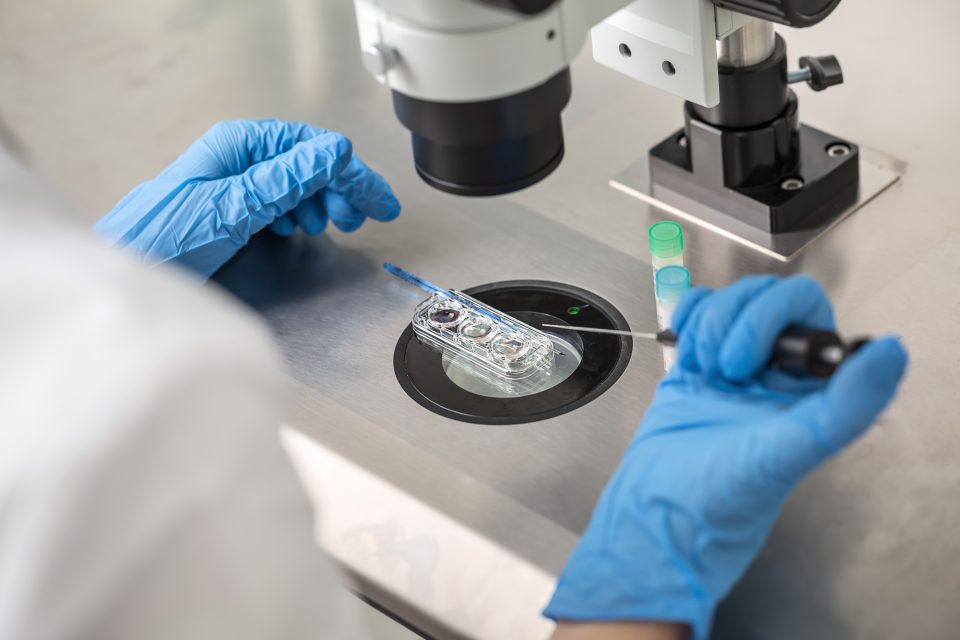
A retrospective study recently published in JAMA Pediatrics examined the relationship between in vitro fertilization (IVF) and different childhood cancers.
“The most important takeaway from our research is that most childhood cancers are not more frequent in children conceived by IVF,” said lead study author Logan Spector, a professor in the Medical School and Masonic Cancer Center member, in a press release. “There may be an increased risk of one class of cancers in children; however, due to the nature of our study, we could not distinguish between IVF itself versus the parents’ underlying infertility.”
According to the study, IVF accounted for 1.7% of all U.S. births in 2015. IVF has previously been associated with negative outcomes, such as increased preterm birth risk, lower birth weight, structural birth defects, and imprinting disorders, the study authors added.
“9Because the latter 2 conditions confer excess risk of childhood cancer and because many childhood cancers originate in utero, describing the occurrence of cancer among children conceived by IVF is imperative,” the researchers wrote.
For the study, the team compared data from the Society for Assisted Reproductive Technology Clinical Outcomes Reporting System to that from birth and cancer registries in 14 states—California, Colorado, Connecticut, Florida, Illinois, Massachusetts, Michigan, New Jersey, New York, North Carolina, Ohio, Pennsylvania, Texas, and Virginia—comprising two-thirds of all U.S. births and three-quarters of IVF-conceived births. Data were randomized 1:10 for 275,686 children conceived through IVF and 2,266,847 who were not conceived through IVF. A cancer diagnosis up until age 10 was the primary outcome.
Association of In Vitro Fertilization With Childhood Cancer in the United States. Risk small but we should include IVF as part of our data when monitoring our patients. https://t.co/qY6zWjkviY
— F Bruder Stapleton (@BruderStapleton) April 2, 2019
IVF and Childhood Cancer: Is There a Connection?
Among the IVF cohort, 321 cancers were reported (49.1% girls and 50.9% boys; mean [SD] age, 4.6 [2.5] years for singleton births and 5.9 [2.4] years for multiple births); 2,042 were reported among the non-IVF children (49.2% girls and 50.8% boys; mean [SD] age, 6.1 [2.6] years for singleton births and 4.7 [2.6] years for multiple births). Cancer rates per 1,000,000 person-years were 251.9 and 192.7 for the IVF and non-IVF cohorts, respectively (hazard ratio, 1.17; 95% CI, 1.00-1.36). Rates of different cancers did not largely differ, with the exception of hepatic tumors, which were more common in the IVF cohort compared to the non-IVF children (hepatic tumor rate: 18.1 vs 5.7; hazard ratio, 2.46; 95% CI, 1.29-4.70). Different IVF treatment modalities or indication for IVF were not associated with any specific cancers.
The study was limited by its observational nature, leaving room for unmeasured confounders. The mothers who gave birth through IVF were more likely to be white, non-Hispanic, more educated, and older compared to those who delivered without IVF. “These differences may be indicative of unmeasured confounders, such as income, medical insurance, and prenatal care, which may affect the risk of adverse perinatal outcomes and the risk of childhood cancer,” the researchers noted.
The study does not provide conclusive evidence that IVF is associated with childhood cancers, the study authors said: “These results suggest that continued follow-up of children conceived via IVF for cancer occurrence is warranted, while other approaches to understanding potential mechanisms should also be pursued, for instance, by comparing the somatic epigenetic landscape of tumors in children conceived via IVF with children conceived naturally.”
Study author Dr. Spector said, “Overall, these results are reassuring to parents who’ve had children through IVF.”
https://twitter.com/GidMK/status/1112894185470754816







 © 2025 Mashup Media, LLC, a Formedics Property. All Rights Reserved.
© 2025 Mashup Media, LLC, a Formedics Property. All Rights Reserved.